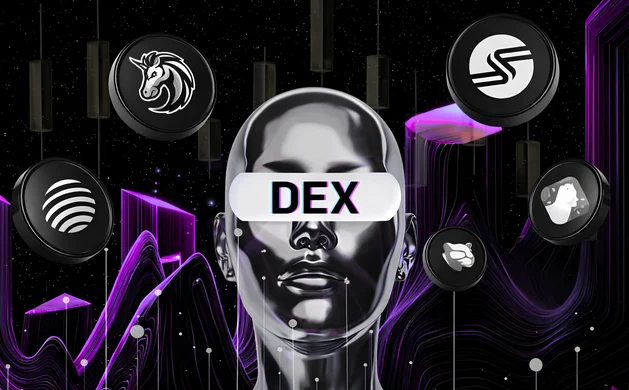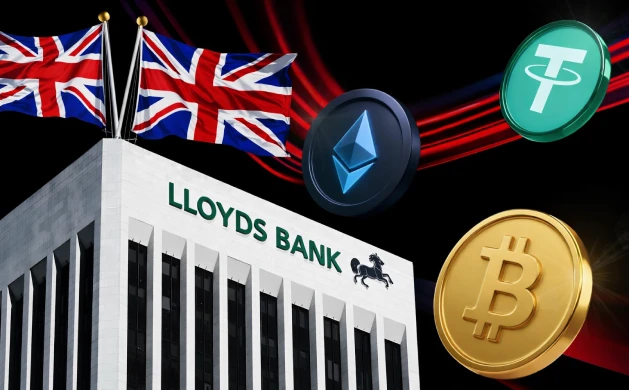Best No KYC Crypto Exchanges in 2025
.webp)
Summary: A no-KYC crypto exchange allows traders to buy and trade cryptocurrencies without completing identity verification. These platforms prioritize user privacy by enabling anonymous transactions, appealing to investors who prefer not to share sensitive personal information.
Here are the five most secure and trusted No-KYC crypto platforms worldwide:
BloFin is the best no KYC crypto exchange for its ease of use, diverse cryptocurrency selection, competitive rates, and daily withdrawal limits of up to $20,000.
Available Assets
450+ Cryptocurrencies
Trading Fees
0.02 Maker and 0.06% Taker Fees
KYC Requirements
No KYC or ID Requirements
Top No-KYC Crypto Trading Platforms
Locating private crypto platforms without KYC has become tougher recently. Many exchanges now enforce partial verification and freeze assets until full KYC is complete. To find the best available options, we've tested several centralized and decentralized exchanges, testing them for spot trading, futures, fiat onramps, and withdrawals. Here is a comparison table of the 5 top No-KYC platforms.
1. BloFin
BloFin is the best overall no-KYC exchange globally as it maintains a 1:1 proof-of-reserves system, currently holding $117 million. The platform features robust security protocols, including 2FA, asset segregation, and partnerships with reputable firms such as Fireblocks and Chainalysis.
It is a centralized cryptocurrency platform founded in 2019 by Matt Hu and based in the Cayman Islands. BloFin has gained recognition for its no-KYC policy, which allows users to trade both spot and futures, as well as deposit and withdraw funds, without requiring identity verification.
It supports over 450 cryptocurrencies for spot trading and offers futures contracts with leverage up to 150x. Key features include copy trading, trading bots, demo trading, and staking. As a global platform, it is accessible and provides customer support in 7 languages.
Pros
- High withdrawal limits of $20,000 daily without identity verification.
- Users can deposit 85 fiat currencies through several global payment methods, including credit cards, debit cards, Apple Pay, and Google Pay.
- Low trading fees start at 0.1% for spot trading and a 0.02% maker and 0.06% taker fee for futures trading.
Cons
- There are currently 46 jurisdictions listed on the BloFin restricted countries list.
- Operates without licenses from major regulatory authorities, potentially raising concerns about compliance and user protection.
- Limited language options with only English, Spanish, French, Russian, Ukrainian, Vietnamese, and Portuguese supported.

2. BYDFi
BYDFi is a centralized crypto exchange that offers various trading services. Originally launched as BitYard in 2019, the platform rebranded to BYDFi in 2023, reflecting its mission to "BUIDL Your Dream Finance." Based in Singapore, it has expanded its reach to over 150 countries.
It offers various trading options, including spot markets with over 600 cryptocurrencies, perpetual futures contracts featuring leverage up to 200x, and copy trading. Additional features include a demo trading account, trading bots, multiple promotional events, and a rewards hub.
The exchange emphasizes strong security protocols, storing over 95% of user funds in multi-signature cold wallets and implementing 2FA. BYDFi also holds regulatory licenses as a Money Services Business (MSB) from authorities in the U.S. (FinCEN) and Canada (FINTRAC).
Pros
- Low spot trading fees range from 0.1% to 0.3% for both makers and takers. For perpetual contracts, the taker fee is 0.06%, while the maker fee is just 0.02%.
- Regulated in 2 jurisdictions and holds a Money Services Business (MSB) license from the United States’ FinCEN and Canada's FINTRAC.
- The platform accepts deposits in 54 fiat currencies via credit card and debit card payments.
Cons
- While BYDFi supports fiat deposits through third-party services like Banxa, it does not currently offer direct fiat withdrawals, focusing primarily on crypto-to-crypto transactions.
- The platform is not available in all regions, which could limit its global user base. BYDFi’s restricted countries include China, the UK, Iran, North Korea, Bangladesh, and Kazakhstan.
- BYDFi does not offer any staking products, which is uncommon for major crypto exchanges.
.webp)
3. Bitunix
Bitunix is a centralized exchange launched in 2021, registered in Saint Vincent and the Grenadines, and headquartered in Dubai. It offers a comprehensive trading platform that provides access to over 300 cryptocurrencies for spot trading and 320 futures trading pairs.
The platform supports spot and perpetual futures trading with leverage options up to 125x. Bitunix is known for its high withdrawal limits, user-friendly interface, advanced trading tools, and robust security measures, including two-factor authentication and cold wallet storage.
It also offers a copy trading feature, enabling users to replicate the strategies of experienced traders, and supports fiat deposits through third-party providers. Bitunix provides transparent reserve holdings and holds 179% collateral for Bitcoin, 146% for Ethereum, and 169% for USDT.
Pros
- The main feature is its no-KYC policy for basic trading activities, allowing users to trade, deposit, and withdraw up to $10,000 daily without identity verification.
- Bitunix holds regulatory licenses as a Money Services Business (MSB) in the U.S. and Canada, and a Virtual Asset Service Provider (VASP) license in the Philippines.
- Competitive spot fees start at 0.08% for makers and 0.1% for takers, which is lower than other exchanges.
Cons
- It does not currently offer direct fiat withdrawals, focusing primarily on crypto-to-crypto transactions.
- Similar to other no-KYC exchanges, Bitunix is restricted in certain countries, including the US, China, Canada, the UK, Japan, Hong Kong, and Singapore.
- As a relatively new exchange established in 2021, Bitunix may not have the same level of trust and recognition as more established platforms, which could be a factor for risk-averse users.

4. Hyperliquid
Hyperliquid is a decentralized exchange (DEX) specializing in perpetual futures, operating on its own high-performance Layer 1 blockchain. Launched in 2022, it aims to combine the security and simplicity of centralized exchanges with the transparency and speed of decentralized platforms.
To start trading, users can connect via an EVM-compatible wallet such as MetaMask, OKX Wallet, Coinbase Wallet, or WalletConnect. The platform also has a native token, HYPE, which plays a central role in governance, staking, and incentivizing user participation.
One of Hyperliquid's standout features is its fully on-chain order book, which ensures transparent and fair trading by recording all transactions directly on the blockchain. This approach contrasts with many DEXs that rely on automated market makers (AMMs).
Pros
- Hyperliquid boasts zero gas fees, low trading fees (0.01% maker and 0.035% taker), and fast transaction speeds.
- Supports leverage options of up to 50x, allowing traders to amplify their positions, although this comes with increased risk.
- There are only seven regions on the Hyperliquid restricted countries list, giving virtually every person access to the platform.
Cons
- Users should be aware that, as a relatively new platform, Hyperliquid has a smaller selection of 50 trading pairs, which is low compared to more established exchanges.
- Hyperliquid does not support direct fiat currency deposits or withdrawals, focusing primarily on crypto-to-crypto transactions.
- The platform's advanced trading features and lack of educational resources may be challenging for beginner traders to navigate.

5. CoinEx
CoinEx is a global cryptocurrency exchange established in 2017 by Haipo Yang, also the founder of ViaBTC. Headquartered in Seychelles, it has expanded its reach to over 200 countries and regions, supporting 18 languages to cater to a diverse user base.
The platform offers a comprehensive suite of trading services, including spot trading, margin trading, futures contracts with up to 100x leverage, and a variety of staking and financial products. It supports over 1,000 cryptocurrencies for spot trading and 1,100+ trading pairs.
It employs robust security measures such as multi-signature protocols, cold wallet storage, and real-time monitoring systems to safeguard user assets. In 2023, CoinEx experienced a security breach affecting its hot wallets, but the platform assured users that their funds remained secure and unaffected.
Pros
- The exchange also offers a native token, CET, which can be used for trading fee discounts, staking, and participating in platform governance.
- Offers a 24-hour withdrawal limit of $10,000 and a 30-day limit of $50,000 with no KYC.
- The platform employs a straightforward spot trading fee model, charging a flat 0.2% for both makers and takers.
Cons
- While CoinEx supports fiat deposits through third-party services, it does not currently offer direct fiat withdrawals.
- The platform is not available in all countries, including the United States, due to regulatory restrictions. Users should verify regional availability before attempting to register.
- Some users have reported delays in receiving assistance from CoinEx's customer service team. While the platform provides support through a ticketing system, response times can vary.

What is a No KYC Crypto Exchange?
A no-KYC crypto exchange is a trading platform that allows users to buy, sell, and swap digital assets without undergoing the standard identity verification process known as Know Your Customer (KYC). These exchanges require minimal personal information, often just an email address, enabling users to trade while maintaining a higher degree of privacy and anonymity.
This approach appeals to individuals who prioritize discretion, reside in regions with restrictive financial regulations, or wish to avoid the delays associated with traditional verification procedures. However, it's important to note that while no-KYC exchanges offer enhanced privacy, they may also carry increased risks due to the lack of regulatory oversight.
Are No-KYC Exchanges Legal?
No-KYC crypto exchanges operate in a legal gray area, and their legality varies depending on jurisdiction. In countries like the USA, the UK, and members of the European Union, regulations mandate that crypto exchanges implement KYC and Anti-Money Laundering (AML) measures.
Using platforms that bypass these requirements can lead to legal repercussions. Failure to comply has resulted in substantial penalties, as seen in the case of KuCoin, which faced nearly $300 million in fines for operating without proper licensing and KYC procedures.
While using no-KYC exchanges isn't explicitly illegal for individuals in most regions, it can lead to complications. While these platforms may offer greater privacy, it's important to understand the legal implications within your jurisdiction and exercise caution.
Can I Buy Crypto Anonymously?
Yes, you can buy cryptocurrency anonymously, but the process has become more complex due to evolving regulations and increased scrutiny. While certain methods still allow for anonymous purchases, they often come with limitations and risks.
- No-KYC Exchanges: These platforms are centralized and allow users to trade crypto without requiring ID verification. However, some no-KYC exchanges impose withdrawal or trading limits, and they're not permitted in jurisdictions with strict AML regulations.
- Decentralized Exchanges (DEXs): DEXs like Uniswap and PancakeSwap operate without central authority, allowing users to trade crypto directly from their wallets. However, they may have limited liquidity and can be more complex for beginners.
- Peer-to-Peer (P2P) Marketplaces: Platforms like Bisq and Hodl Hodl facilitate direct trades between users, enabling buyers and sellers to negotiate terms and payment methods. However, it's essential to verify the reputation of counterparties to avoid scams.
- Bitcoin ATMs: Some Bitcoin ATMs allow purchases with cash without necessitating ID verification. By inserting cash, users can receive Bitcoin directly to their wallets. However, many ATMs now implement KYC procedures, and fees range from 7% to 20%.
Purchasing cryptocurrency anonymously is still possible but increasingly challenging. It's essential to thoroughly research and understand the legal and security implications in your region before proceeding.
Final Thoughts
No-KYC crypto exchanges offer a route to greater privacy, but they come with trade-offs. While platforms like BloFin, BYDFi, Bitunix, Hyperliquid, and CoinEx provide access to trading without identity checks, users should be aware of potential legal and security implications.
Regulatory compliance varies by jurisdiction, and operating on platforms without KYC may expose users to risks, including limited recourse in cases of disputes or breaches. It's essential to consider both the benefits and potential downsides before engaging with these platforms.
Frequently asked questions
How do no-KYC exchanges differ from standard crypto exchanges?
No-KYC exchanges do not require identity verification, allowing users to trade cryptocurrencies anonymously. Standard exchanges, on the other hand, enforce Know Your Customer (KYC) procedures to comply with regulatory requirements.
Are no-KYC crypto exchanges safe to use?
While many no-KYC platforms incorporate security measures like cold storage and two-factor authentication, their anonymity can attract an increased risk of fraud and scams. Always choose reputable exchanges and secure your funds with strong passwords and personal wallet storage.
Can I withdraw fiat currency from a no-KYC exchange?
Typically, no-KYC exchanges focus on crypto-to-crypto transactions and often limit direct fiat withdrawals. Users usually need to transfer cryptocurrencies to another platform or wallet that supports fiat conversions.
What are the tax implications of using a no-KYC exchange?
Using a no-KYC exchange doesn't exempt you from tax obligations. In jurisdictions such as the UK, cryptocurrency transactions are subject to taxation, and authorities like HMRC monitor bank activities to identify undeclared crypto income.

Written by
Jed Barker
Editor-in-Chief
Jed, a digital asset analyst since 2015, founded Datawallet to simplify crypto and decentralized finance. His background includes research roles in leading publications and a venture firm, reflecting his commitment to making complex financial concepts accessible.










